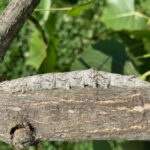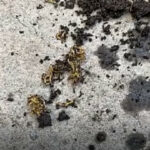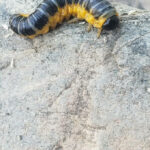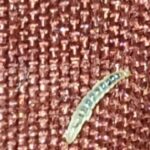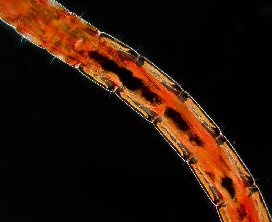It is believed that at any given time the human body may be infected with dozens of different types of parasites. Some are microscopic while others are quite visible to the naked eye. Some parasites are found more often in animals, for example, the bloodworm typically infects horses, and others may affect humans more often. In all, there are more than 3,200 types of parasites in existence today. They are divided into the following categories: Cestoda, Nematoda, Protozoa, and Trematoda. Just a few of the different types of parasites that may infect humans include: tapeworms, (Cestodes); hookworms, pinworms, and roundworms (Nematodes); giardia (Protozoa); and flat worms, (Trematoda).
The most common type of human parasite is the roundworm. It is estimated that one in every four humans is infected with roundworms. It is important to keep in mind, however, that parasites rarely cause any serious (or fatal) complications in Europe and North America. No matter what type of worm the human body may be infected with, whether it’s a bloodworm that somehow made its way into your system (extremely rare) or a roundworm, the vast majority of parasites cause some of the same unpleasant symptoms. Symptoms of parasites/worms in the human body may include:
Loss of appetite
Abdominal discomfort
Rashes
Insomnia
Eye pain
Protein deficiency
Gas
Constipation
Mental dullness
Fever
Coughing
Nervousness
Vomiting
Nausea
Anemia
Stomach bloating
Bloody stools
Weakness
Chills
Diarrhea
Fatigue
It is important to keep in mind that these symptoms are also very common symptoms for many other diseases and conditions, so its best to consult your physician for an accurate diagnosis. Your physician will test for parasites by taking a feces sample and examining it for parasites and/or eggs. Fortunately, the vast majority of parasites can be eliminated by using some of the same methods or by ingesting some of the same types of medications or antibiotics.
Parasites can be eliminated from the body through the use of colon cleansers and/or colonics, several rounds of antibiotics or medications as prescribed by your physician, and/or by utilizing a number of different herbal/natural remedies. It’s best to consult an herbalist for the very best herbal remedies to get rid of parasites. There are, however, several popular and effective remedies consisting of the following combinations of herbs and ingredients:
Black walnut leaves, wormwood, quassia, cloves, male fern
Capsicum, wormwood, sage
Cramp bark, pumpkin seed, capsicum, thyme, garlic
Black walnut, pine needles, sassafras
Herbal remedies should be taken orally for a minimum of two weeks.
Some individuals may complain of re-infection. It is so important to change your eating habits immediately if you suspect a parasite infection and it’s best not to go back to your regular eating habits in order to prevent re-infection. There are certain foods, spices, and beverages that can help ward off parasite infections or keep you from becoming infected through food or water sources. These include:
Cranberry juice
High-fiber foods
Pumpkin seeds
Garlic
Pomegranates
Apple cider vinegar
Figs
Bottled or distilled water
Thoroughly cooked meats and seafood
Organic fruits and vegetables, washed thoroughly
Avoid the following foods and activities if at all possible:
Undercooked meats
Chestnuts
Sugar
Watercress
Refined carbohydrates
Swimming in lakes, rivers, streams
Using the microwave to cook meats
And finally, never underestimate the power of clean hands. You should always wash your hands thoroughly after using the bathroom whether it is in your home or in a public place; wash kitchen utensils and countertops with hot soapy water after each use; and wear gloves when changing your cats litter box or cleaning up after your pets.
All About Worms is always free, always reader-supported. Your tips via CashApp, Venmo, or Paypal are appreciated! Receipts will come from ISIPP Publishing.




